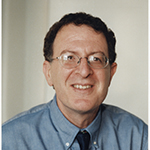Jeffrey I. Gordon, MD, director of the Center for Genome Sciences and Systems Biology at Washington University School of Medicine in St. Louis, has been named the 2013 recipient of the Robert Koch Award. The award is widely regarded as the leading international prize in microbiology.
Gordon, also the Dr. Robert J. Glaser Distinguished University Professor, is being honored for his pioneering studies of the body’s trillions of microbes and their role in health and disease. His explorations of gut microbial communities have laid the foundation for new research to understand how microbes and their genes, collectively known as the microbiome, shape many aspects of human physiology, metabolism and immunity.

Gordon’s award includes a prize of 100,000 euros and is a recognition of the significant impact microbiome research is having on the field of microbiology and, more broadly, on research in the biological sciences.
“The Koch award is a well-deserved honor for Jeff and a timely recognition of his role in founding the field of human microbiome research,” said Larry J. Shapiro, MD, executive vice chancellor of medical affairs and dean of the School of Medicine. “His studies have changed our view of ‘self’ and of human development, health and disease, and opened the door to new possibilities for 21st-century medicine.”
Much of what is known about the workings of the gut microbiome has come from Gordon’s seminal studies of identical and fraternal twins and of “gnotobiotic” mice – germ-free mice that had been raised under sterile conditions and then colonized with human microbes and fed human diets.
He and his team have developed powerful new computational and experimental approaches to characterize the collection of microbes living in the gut and to define the role of microbial genes in extracting nutrients and calories from the diet, synthesizing vitamins and nutrients, and helping to shape the immune system. This work can help scientists design foods of the future that provide added nutritional benefits to consumers.
In the past decade, Gordon’s research has uncovered a compelling link between the microbiome and obesity and, more recently, his studies have implicated a dysfunctional gut microbiome as an underlying cause of childhood malnutrition.
Earlier this year, the contributions of Gordon and his students to microbiome research were recognized by the National Academy of Sciences with the Selman A. Waksman award. Last year, he received the 2012 Award for Distinguished Research in the Biomedical Sciences from the Association of American Medical Colleges.
Gordon will be presented with the Koch Award at a November ceremony at the Berlin-Brandenburg Academy of Sciences and Humanities in Germany. He will be honored with Anthony S. Fauci, MD, director of the National Institute of Allergy and Infectious Diseases, who will receive the Robert Koch Gold Medal, a lifetime achievement award from the Koch Foundation. Fauci is being recognized for his research in the field of immune regulation and AIDS.
Both honors are named after German scientist Robert Koch, who is considered one of the founders of the field of microbiology. Koch discovered the bacterium that causes tuberculosis and was awarded the Nobel Prize in Physiology or Medicine in 1905.
Gordon has served on the School of Medicine faculty for more than 30 years and mentored almost 120 PhD and MD/PhD students and postdoctoral fellows. He earned a bachelor’s degree from Oberlin College and a medical degree from the University of Chicago Pritzker School of Medicine.
Washington University School of Medicine’s 2,100 employed and volunteer faculty physicians also are the medical staff of Barnes-Jewish and St. Louis Children’s hospitals. The School of Medicine is one of the leading medical research, teaching and patient care institutions in the nation, currently ranked sixth in the nation by U.S. News & World Report. Through its affiliations with Barnes-Jewish and St. Louis Children’s hospitals, the School of Medicine is linked to BJC HealthCare.